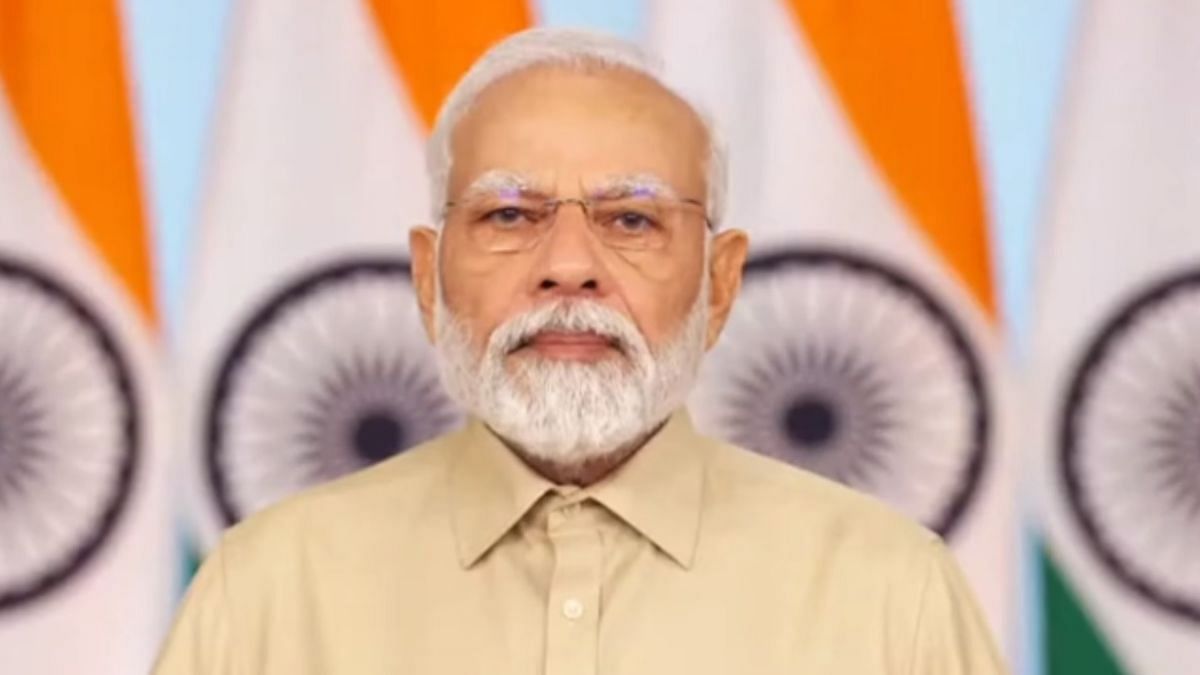

PM addresses G20 Health Ministers’ Meeting.
Prime Minister Narendra Modi on Friday made a strong appeal to the G20 nations to open all innovations for public good and facilitate equitable availability of technology to all so that the Global South can close the gap in healthcare delivery.
In an era where Big Pharma companies of the West have been giving priority to profits by clinging on to patents, PM Modi cited India’s example of providing free vaccines to poor nations under its Maitri initiative and making its digital COWIN platform freely available to the Global South to tackle the pandemic.
India’s COWIN platform successfully facilitated the largest vaccination drive in human history. It managed the delivery of more than 2.4 billion vaccine doses, and real-time availability of globally verifiable vaccination certificates. The Global Initiative on Digital Health will bring together various digital health initiatives on a common platform.
Under the Vaccine Maitri initiative, India delivered 300 million vaccine doses to more than 100 countries, including many in the Global South. Resilience has turned out to be one of the biggest learnings of this time.
India and South Africa had also taken the lead during pandemic to push for a patent waiver on Covid vaccines at the World Trade Organisation (WTO) so that they could be manufactured in poor countries to save human lives.
The Prime Minister underlined the importance of being ready to prevent, prepare, and respond to the next health emergency. This is especially important in today’s interconnected world. As we saw during the pandemic, health issues in one part of the world can affect all other parts of the world in a very short time.
The Prime Minister pointed out how closer cooperation would take the world “one step closer to our goal of achieving Universal Health Coverage.”
At the same time PM Modi also highlighted the lessons that other countries could draw from India’s experience of how holistic health and wellness can help enhance everyone’s resilience. These included public participation in the eradication of TB.
The establishment of the WHO Global Centre for Traditional Medicine in Jamnagar, Gujarat is an important step in this direction.
PM Modi expects the holding of WHO Global Summit on Traditional Medicine along with G20 Health Ministers meeting will intensify efforts to harness its potential. This would help in the effort to build a global repository of traditional medicine to extend health coverage for all.
WHO chief Dr. Tedros Adhanom Ghebreyesus had also said on Thursday that he hoped the Gujarat Declaration after the G20 health minister’s summit will integrate the use of traditional medicines in national health systems, and help unlock the power of traditional medicine through science.
He highlighted how the sources of many modern drugs can be traced to use of traditional medicine methods by communities like willow bark, and periwinkle which forms the basis for aspirin, and cancer drugs.
India’s national digital platform, e-Sanjeevani, which has facilitated 140 million tele-health consultations to date was another example cited by PM Modi that other countries could emulate as part of the digital solutions and innovations for are a more equitable and inclusive healthcare system.
Also read: WHO chief Ghebreyesus pins hope on Gujarat Declaration to unlock power of traditional medicines
Prime Minister Narendra Modi interacted with members of the Indian diaspora here on Wednesday as…
The city of Hamburg in Germany is set to host the 11th edition of India…
The International Atomic Energy Agency (IAEA) has confirmed that two Iranian centrifuge production facilities, TESA…
The human rights department of the Baloch National Movement (BNM), Paank, has strongly condemned the…
In a major boost to India's coastal defence capabilities, the Indian Navy on Wednesday commissioned…
Volker Turk, the UN High Commissioner for Human Rights, on June 17 expressed concern over…